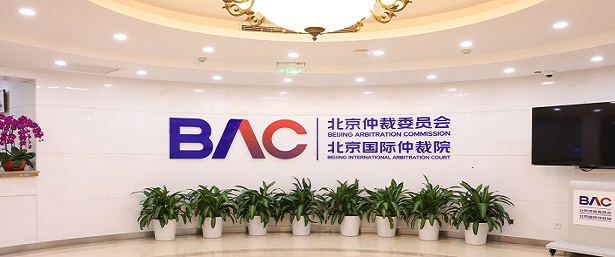
发布时间: Thu Aug 10 10:57:33 CST 2023 供稿人:赵菡清

争|议|摘|要
当事人死亡这一特殊情形的产生,往往会对仲裁活动的正常开展产生影响。虽然最高院对《仲裁法》的司法解释对仲裁协议的效力问题予以了原则性规定,但仲裁活动所涉具体情形复杂,相关主体认知程度也不尽相同,有关问题的处理也不乏争议。
实践中,此情形既可能发生在进入仲裁程序之前,也可能发生在仲裁程序过程中,因此有必要了解仲裁程序分别如何处理此等情况。需要注意的是,不同阶段所需要应对的问题有所不同。
进入程序前
如果在进入仲裁程序前自然人死亡,继承人多会持载有仲裁条款的合同和死亡证明申请立案。
以笔者任职的北京仲裁委员会/北京国际仲裁中心为例,仲裁机构在审查立案的过程中,除了审查该等材料之外,往往还需查明申请立案的主体是否属于适格继承人;并且会注重审查是否存在申请主体之外的案涉债权的其他继承人,如还存在其他继承人(包括遗嘱继承人和法定继承人),裁决作出后可能会导致其他继承人失权而引发后续争议。
而在证明材料方面,仲裁机构也会结合实际情况进行一定的灵活处理。
如在某仲裁案件中,自然人A作为甲方,与作为乙方的一家律师事务所签订了委托代理协议,委托该律所处理行政诉讼案件,甲、乙双方因履约产生争议,因自然人A死亡,自然人B代为申请仲裁。
因自然人B地处偏僻,难以提交证明其为A唯一的第一顺位继承人的材料,仲裁机构在审查过程中注意到,在所涉行政案件的判决书中已经明确A和B的父子关系(且B为A唯一的第一顺位继承人),因此,仲裁机构受理了B提起的仲裁案件。
程序进行中
如果自然人死亡发生于仲裁程序进行过程中,即自然人已经作为仲裁案件的一方进入仲裁程序后因故死亡,此时的问题关键是仲裁程序应该如何进行。
《民事诉讼法》第一百五十条规定:“有下列情形之一的,中止诉讼:(一)一方当事人死亡,需要等待继承人表明是否参加诉讼的;……。中止诉讼的原因消除后,恢复诉讼。”
《最高人民法院关于适用﹤中华人民共和国民事诉讼法﹥若干问题的意见》第五十五条规定:“在诉讼中,一方当事人死亡,需要等待继承人表明是否参加诉讼的,裁定中止诉讼。人民法院应当及时通知继承人作为当事人承担诉讼,被继承人已经进行的诉讼行为对承担诉讼的继承人有效。”
在仲裁活动中,需参照上述条款进行处理。而在中止程序后,如何确认继承人、并进行程序恢复,是较易发生争议的环节。
如果死亡的自然人为申请人,为减少程序风险,其继承人可以在仲裁程序处在中止的过程中办理相关的公证手续,明确第一顺位继承人的情况,并由全部第一顺位继承人继续参与仲裁程序。如果还存在继承遗产的诉讼争议,则应在法院作出相应判决后,根据判决确定仲裁事项承继的权利人来参与仲裁程序。
如果死亡的自然人为被申请人,则存在其继承人拒绝配合出具相关承继证明从而拒绝参与仲裁程序的风险,并可能会对仲裁管辖权或者仲裁程序提出异议,亦或是去申请确认仲裁协议无效。在此情况下,申请人应积极应对,以期争取到对己方最有利的结果,进而避免相应不必要的程序风险,保证后续仲裁程序的顺利推进。
审慎审理
在此之外,笔者还注意到,在自然人民事主体资格消灭的情况下,人民法院在关于仲裁条款对其继承人的效力认定上多持肯定的态度。
而作为案件审理主体的仲裁庭在裁决当事人实体权利义务的过程中也应当更为审慎,避免涉及超越仲裁审理范围的继承关系,落点于商事争议焦点本身,以确保继承人在其继承范围内承担相关权利义务,防范超裁的风险。
Procedures in event of arbitration party’s death
The death of an arbitration party complicates proceedings. While the Supreme People’s Court’s interpretation on the Arbitration Law provides guidance on the binding nature of arbitration agreements in cases of merging or divisions of a party, the complexity of specific circumstances and varying levels of recognition among involved parties make handling these issues controversial.
In practice, the necessity to navigate arbitration procedures in such circumstances occurs both before and during arbitral proceedings. It is noteworthy that addressing the issue differs at various stages.
BEFORE PROCEEDINGS
If a natural person dies before proceedings commence, his or her successors will mostly file the case with the contract containing the arbitration clause and the death certificate.
During the process of case acceptance review, in addition to reviewing relevant material, arbitration institutions such as the Beijing Arbitration Commission or Beijing International Arbitration Centre are usually required to ascertain whether the applicant is an eligible successor.
The arbitration institution will pay particular attention to whether there are any successors other than the applicant to the creditor’s right involved in the case.
If there are any other successors (including testamentary successors and legal successors), they may become disqualified after the award is rendered, leading to subsequent controversy.
In terms of evidentiary materials, arbitration institutions provide flexibility on a case-by-case basis.
For instance, in an arbitration case, natural person A, as party A, enters into an attorney agreement with a law firm, as party B, to deal with administrative litigation case.
Party A and party B have a dispute over performance of a contract. Natural person party A dies and natural person party C applies for arbitration on his behalf. However, natural person party C had difficulty submitting material proving to be sole successor of party A.
But, during case acceptance review, the arbitration institution noticed the paternity relationship between parties A and C (and B is the sole eligible successor of party A) had been clarified in the judgment of a previous administrative case. Therefore, the arbitration institution accepted the arbitration case filed by party C.
DURING PROCEEDINGS
If death occurs in the course of arbitral proceedings – namely, after commencement – the key issue is how the proceedings should continue being conducted.
Article 150 of the Civil Procedure Law provides: “An action shall be suspended in any of the following circumstances: (1) one of the parties dies and it is necessary to wait for his successor to state whether he wishes to participate in the action; … Proceedings shall be resumed after the cause of suspension has been eliminated.”
Article 55 of the Opinions of the Supreme People’s Court on Some Issues Concerning the Application of the Civil Procedure Law provides: “Where, in an action, a party dies and it is necessary to wait for his or her successors to indicate whether they will participate in the action, the people’s court shall issue a ruling to suspend the action. The people’s court shall notify the successors to participate in the action as the parties to the case, and the litigation conduct of the deceased shall bind the successors that participate in the action.”
In arbitration activities, the matter shall be handled with reference to the preceding provisions. But after suspension of the procedure, confirming the eligible successor and resuming the procedure is the more controversial part.
In the event that a deceased is a claimant, to reduce procedural risk, his or her successors may complete the relevant notarisation process during the suspension of arbitral proceedings.
In such a case, first-in-line successors can be clarified and all those eligible successors continually participate in the proceedings. If there is also a dispute in the action for inheritance, the successor shall be determined by the court in the corresponding judgment. The eligible successor determined by this effective judgment shall participate in the proceedings.
In the event that the deceased is a respondent, there is a risk that his or her successors may refuse to co-operate in the issuance of relevant inheritance certificates, and refuse to participate in the arbitral proceedings. They may also raise objections to the arbitral jurisdiction or arbitral proceedings, and even apply for ruling invalidity of the arbitration agreement.
Under such circumstances, the claimant shall actively respond and strive to create their most favourable outcome, so as to avoid unnecessary procedural risk and ensure subsequent progress of the arbitral proceedings.
PRUDENT ARBITRATION
The author has also noticed that in the event a natural person no longer has the civil capacity as a claimant, the court usually adopts a positive attitude when determining validity of the arbitral agreement on his or her successors.
The arbitral tribunal should also be more prudent during the trial to avoid involving inheritance relationships that exceed the scope of arbitration. Instead, the tribunal should focus on the commercial dispute independently, ensuring the successors will assume relevant rights and obligations within the scope of succession, and avoid the risk of exceeding arbitral authority.
作者简介
作者 | 北京仲裁委员会/北京国际仲裁中心仲裁秘书赵菡清
本文刊载于《商法》2023年6月刊。如欲阅读电子版,欢迎浏览《商法》官网。
